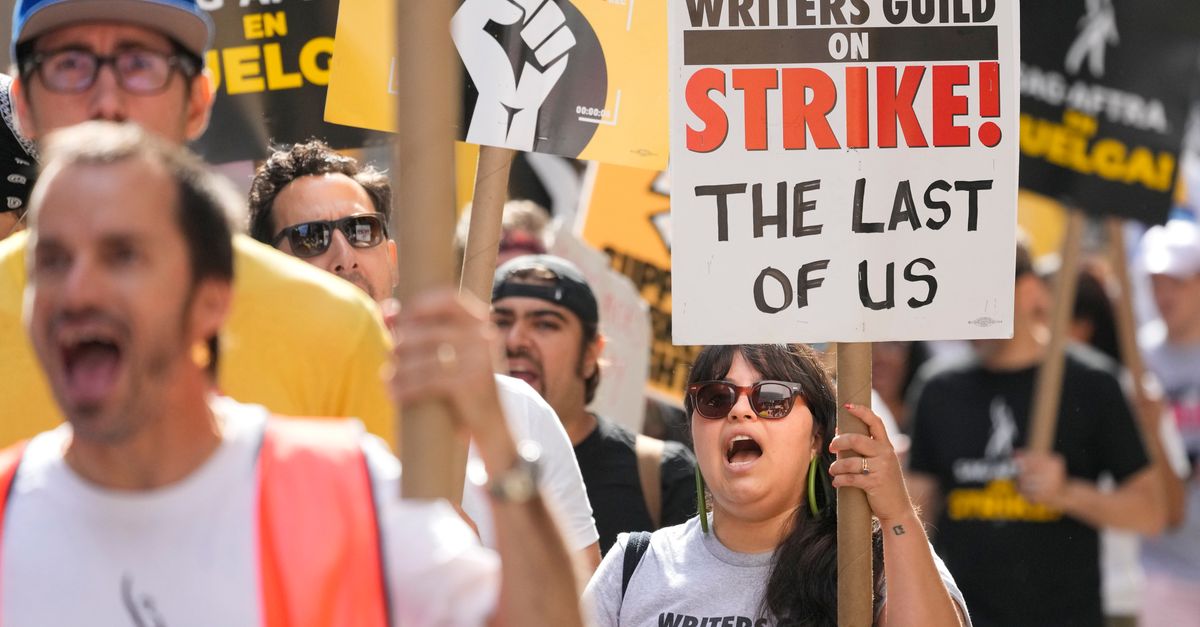Key takeaways:
- The new contract includes strict regulations for the use of artificial intelligence on covered projects.
- The agreement increases pay minimums for most by 5%, then 4% next year and 3.5% the year after that.
- The guild secured sweeping wins that largely met many of the guild’s demands, including the pay increases and increases in employer contributions to health plans, pension plans, and other benefits.
On Wednesday morning, the Writers Guild of America, East and West, finalized a tentative agreement with the film and television industry, ending a nearly five-month strike. This agreement will allow thousands of film and television writers to return to work.
The new contract, which must still be ratified by the 11,500 film and TV members of the union, includes strict regulations for the use of artificial intelligence on covered projects. AI will not write or rewrite any literary material.
The agreement increases pay minimums for most by 5%, then 4% next year and 3.5% the year after that. The three-year “minimum basic agreement” was approved Tuesday by the writers guild negotiating committee, the WGA West Board and the WGA East Council.
The WGA strike has disrupted programming and other operations for Hollywood media companies. The guild secured sweeping wins that largely met many of the guild’s demands, including the pay increases. Other provisions of the agreement include increases in employer contributions to health plans, pension plans, and other benefits.
The Writers Guild of America is now urging its members to ratify the agreement. Once ratified, the new contract will go into effect immediately.



Be First to Comment